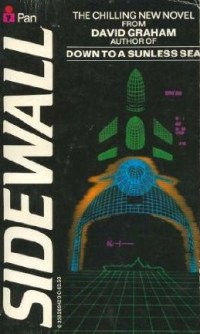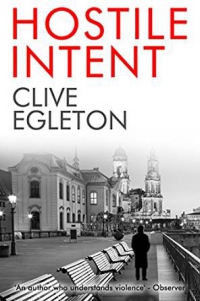Sidewall by David Graham
 Thursday, December 16, 2010 at 1:28AM
Thursday, December 16, 2010 at 1:28AM 
Published by Pan in 1983
Sidewall is a surprisingly good science fiction thriller that's more thriller than science fiction. This 1982 novel is set in 1993. Most of David Graham's predictions about life in the '90's turned out to be pretty far off the mark (although he did manage to predict the Gulf War). You have to make a mental adjustment to set the novel a bit farther into the future, but after that's accomplished, the story seems quite plausible -- and in any event, it's terrifically exciting.
The British are building a sidewall -- a marine hovercraft -- that seats two thousand passengers and makes the trip from England to New York in about eight hours. Although it's being developed in secret (in cooperation with the British military), the chief executives of the world's airlines have found out about it and are determined to put a stop to it, lest they lose their transatlantic fares to competition from this new form of transportation. In addition, someone has leaked plans for the vessel to the Soviet Union (substitute Russia, since Graham failed to predict the Soviet Union's demise) which is building its own militarized version of the craft.
The main characters in Sidewall are engaging, particularly the unfortunately named Don Savage, chief of security for the company developing the sidewall, who struggles with a mysterious illness and a hellish marriage as he tries to save the company from Russian spies and airline CEO's. Action scenes are vividly written and once it begins, the action is relentless -- all the way through to the last page -- as imaginative attacks are launched against the sidewall.
David Graham's most popular novel was Down to a Sunless Sea. In addition to Sidewall, he wrote three others, two under the name Wilbur Wright. It's a shame he didn't write more, and it's a shame Sidewall is out of print. Seek out a used copy if you enjoy fast moving thrillers.
RECOMMENDED




